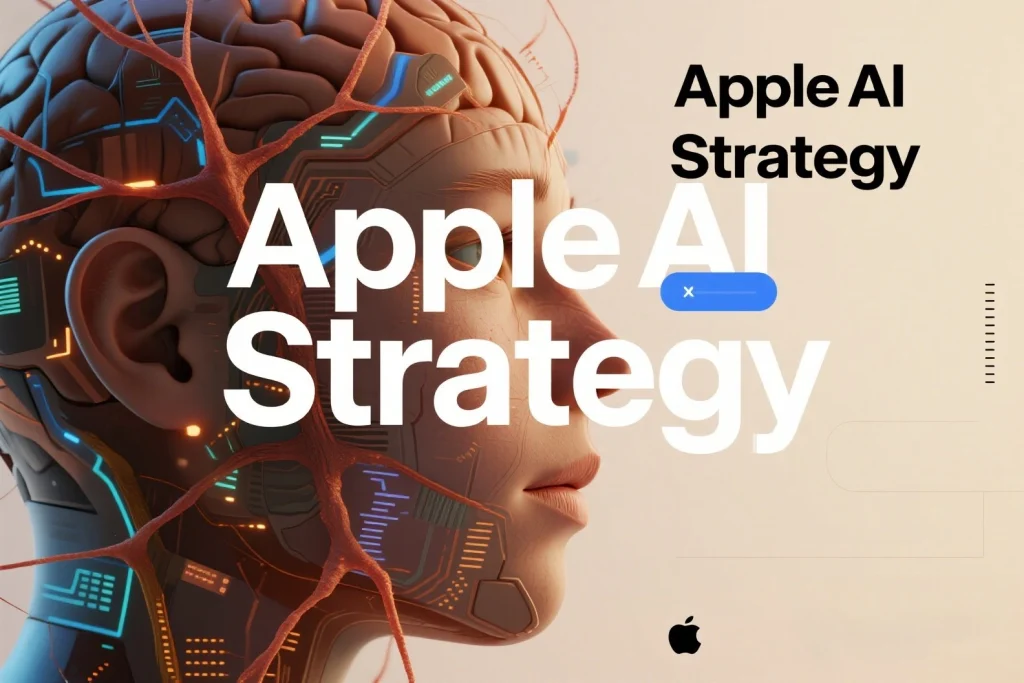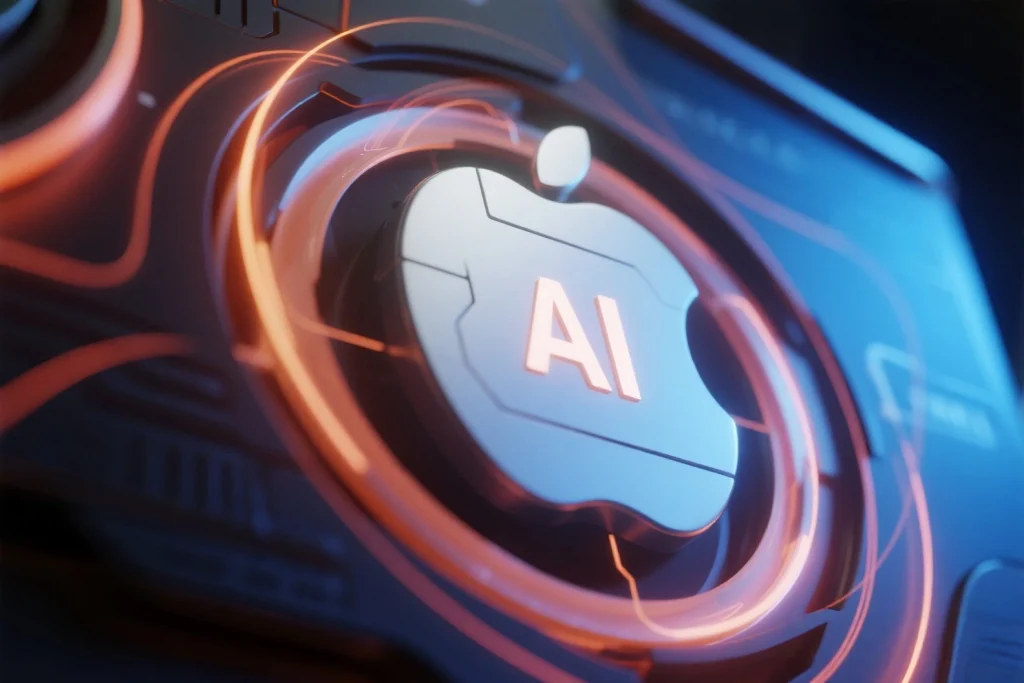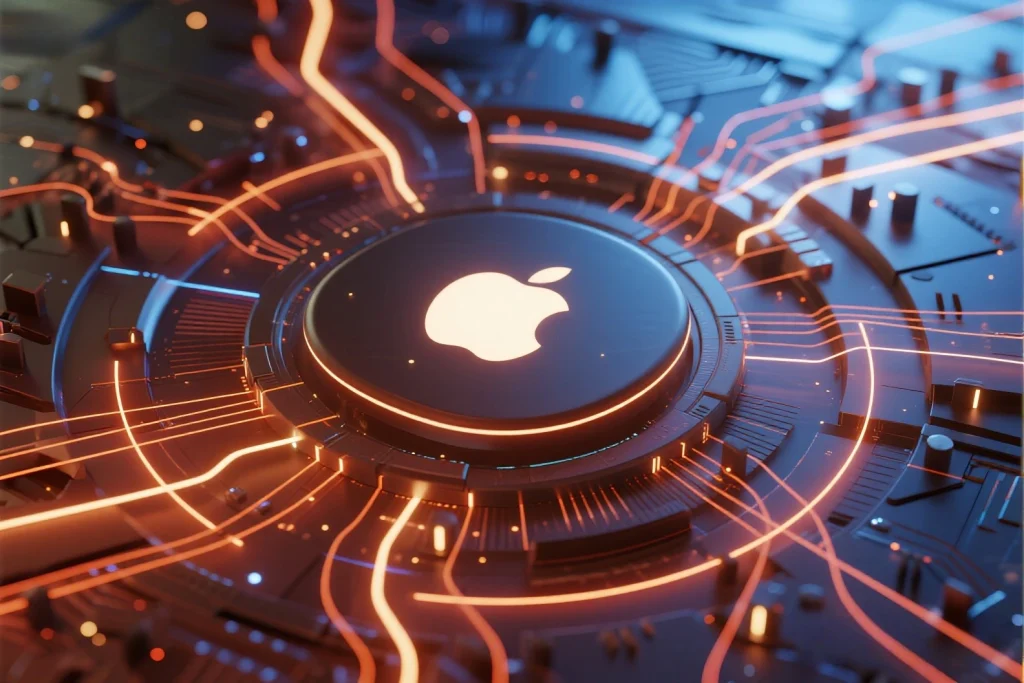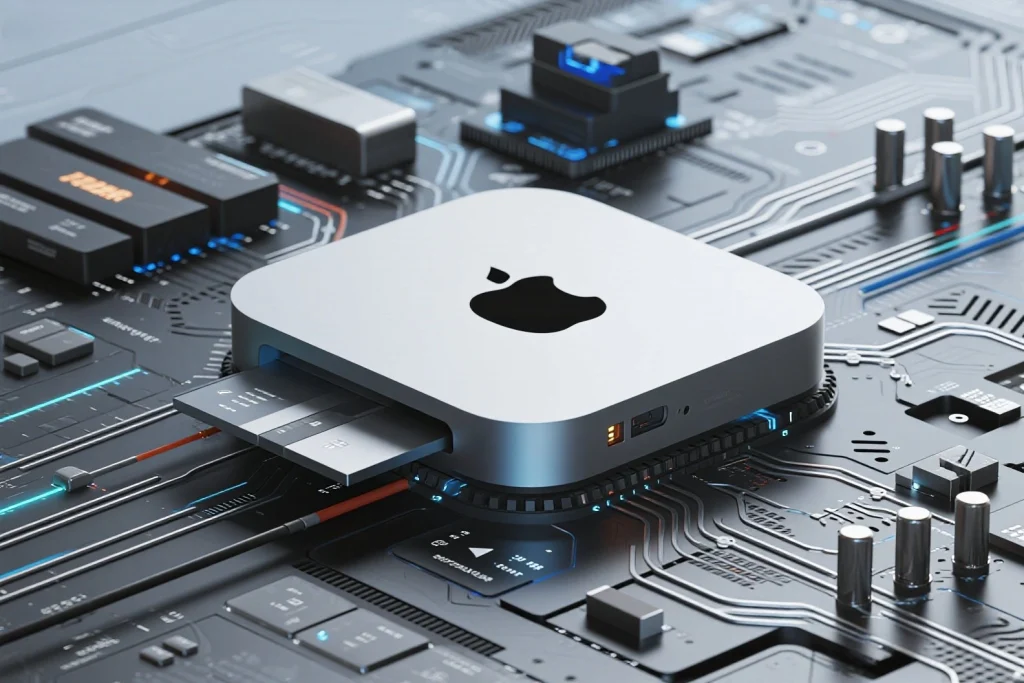Why Apple’s Slow and Steady AI Strategy Might Be the Smartest Move in 2025
In the fast-evolving tech landscape, companies rush to deploy AI-powered features as quickly as possible, hoping to capture market share and user attention. But Apple has taken a different path: instead of chasing speed, it is choosing patience and precision. Apple’s major Apple AI Strategy project, called Apple Intelligence, won’t be fully available to the mass market until 2026. This slow and deliberate pace stands in stark contrast to competitors who flood the market with new AI capabilities almost monthly.

Some see this as Apple falling behind. However, this decision is likely a strategic one rooted in Apple’s long-term vision for technology that is not only innovative but reliable and user-friendly. By not rushing to release incomplete or unstable Apple AI Strategy features, Apple is prioritizing quality, privacy, and real-world usability over hype and quick wins.
Apple Intelligence: Impressive but Not Yet Ready
Apple’s announcement of Apple Intelligence at WWDC 2025 marked the company’s official entry into the AI assistant space. The suite bundles AI enhancements across Apple’s ecosystem, including iOS, macOS, and watchOS. Key features showcased include:
- Advanced contextual understanding: Siri will remember previous conversations and user preferences, enabling multi-step commands and more natural dialogue.
- Smart writing tools: Enhanced suggestions for emails, messages, and documents powered by on-device machine learning.
- App predictions: AI-driven app suggestions based on user habits and contexts.
- Privacy-first design: Most processing happens on-device to minimize data exposure.
While these features are exciting, their availability is limited. Only select beta testers in the US can try them now, and the broader rollout is expected no earlier than iOS 18.4 in late 2025, with global expansion potentially pushing into 2026.
This cautious rollout highlights Apple’s commitment to ensuring the technology is truly ready before offering it widely. Unlike competitors who deploy features broadly and fix bugs reactively, Apple’s strategy is to polish first, then launch.
Is Apple Falling Behind in AI?
At first glance, Apple AI Strategy appears late to the game. OpenAI’s GPT-4o and Google’s Gemini models have already transformed many apps and services. Microsoft’s integration of Copilot into Office, Windows, and Azure has brought AI-assisted productivity tools to millions. Meanwhile, Apple’s Siri has seen little AI-driven advancement for the average user.

But Apple’s track record suggests this isn’t a misstep. The company has a history of entering markets later but with a far superior, more integrated product. The Apple Watch and iPad were late entrants but quickly became dominant because Apple focused on delivering a seamless, high-quality user experience rather than rushing to be first.
This measured approach can be crucial in AI, where early versions often disappoint users with bugs, inaccuracies, or privacy concerns. Apple understands that a frustrating AI assistant can do more harm to user trust than none at all.
When “Move Fast” Breaks Things
The rush to be first has led many companies to release AI tools that are impressive on paper but problematic in practice.
- Microsoft Copilot: While integrated deeply into Office products, users have reported that it often fabricates citations, misinterprets data, and creates text that lacks coherence, requiring extensive human correction.
- ChatGPT: Though popular, ChatGPT sometimes confidently delivers incorrect information — a phenomenon known as “hallucination.” For critical tasks, this unpredictability reduces its practical value.
- Google Gemini and Anthropic Claude: Both models show promise in natural language understanding but struggle with longer, multi-step reasoning or complex professional tasks, limiting their current utility.
In the developer community, AI-generated code is seen as useful for basic snippets but often falls short in complex projects, where manual debugging of AI output can take longer than writing code from scratch.

Apple’s cautious stance reflects these realities. Instead of flooding users with half-baked AI, they are focusing on robust, trustworthy solutions.
Apple AI Strategy: Slow, Steady, Calculated
Apple’s approach to AI reflects its broader philosophy of prioritizing privacy, security, and quality over quick feature releases.
- No overhyped promises: Apple has not marketed Siri as a groundbreaking AI assistant, avoiding setting unrealistic user expectations.
- On-device processing: Many AI functions will happen locally on the device, reducing data sent to servers, improving privacy, and speeding up responses.
- Iterative improvement: Apple is releasing features gradually, gathering user feedback from beta testers, and refining before wide deployment.
- Cross-device integration: Apple Intelligence is designed to work seamlessly across iPhone, iPad, Mac, and Apple Watch, creating a unified experience.
TechRadar and other industry experts have praised this approach, arguing that many current AI offerings are immature and prone to error, and premature release can damage user trust and brand reputation.
The Long Game
Apple’s history is full of examples where they entered late but dominated by perfecting the product:
- En Apple Watch came years after Fitbit and Android Wear devices but set the industry standard with tight hardware-software integration and a strong app ecosystem.
- En iPad was not the first tablet but became the default thanks to smooth performance, a robust app store, and intuitive design.
- Similarly, Apple’s AI ecosystem might not lead in speed but could win in reliability and user satisfaction.
Apple’s emphasis on privacy and user control also sets it apart, especially as consumers become more concerned about data security. Processing Apple AI Strategy tasks on-device rather than cloud-based servers helps minimize risks.
Why Apple Can Afford to Wait
Unlike smaller startups and even giants like Microsoft and Google, Apple is not under intense pressure to rapidly prove its AI capabilities. It already controls the whole stack: designing chips, building software, and managing the App Store. This unique position allows Apple to:
- Avoid hype-driven pressure to launch products before they’re ready
- Maintain control over the entire user experience
- Prioritize privacy and security without compromising performance
- Focus on long-term user satisfaction over short-term market buzz
Apple’s financial strength also means it can invest heavily in AI research without needing immediate returns.
Risks of Waiting Too Long
Delaying AI rollouts has potential downsides:
- Loss of early adopters: Users eager for AI features might switch to platforms like Android or Windows where AI assistants are more prevalent.
- Ecosystem lock-in: Google and Microsoft’s AI integrations could become so entrenched that Apple struggles to catch up.
- Market perception: Some may view Apple as lagging behind in the AI arms race, affecting brand perception among tech enthusiasts.
Apple seems aware of these risks and is mitigating them by offering limited beta access to Apple Intelligence features to select users, ensuring the company stays relevant in AI conversations without committing prematurely.
What This Means for Apple Users

For Apple customers, this means waiting longer for Apple AI Strategy enhancements that feel truly native and reliable. But when they arrive, the benefits could be significant:
- Reliable AI assistance that understands context and can follow multi-step commands without confusion
- Better privacy protections through on-device processing
- Deep integration across Apple devices for a seamless experience
- Less frustration with buggy or inaccurate AI outputs
In a world saturated with AI tools that overpromise and underdeliver, Apple’s approach could provide a refreshing change.
Apple’s Measured AI Rollout: A Summary
| Aspect | Apple’s Approach | Others’ Approach |
|---|---|---|
| Rollout Timeline | Beta in 2025, full in 2026 | Mass launch in 2023-2024 |
| User Target | Controlled beta on select devices | Open to everyone |
| Enfoque | Reliability, privacy, utility | Speed, market share, hype |
| Common Issues Avoided | AI hallucination, bugs, backlash | Frequent in competing products |
| Past Track Record | Late launch but wins (Watch, iPad) | Often rushed, some retracted features |
Final Thought: Doing Less, Smarter
In a race where everyone wants to be first, Apple AI Strategy is counterintuitive but potentially game-changing: walk slowly but confidently, build solid foundations, and release when truly ready.
This could mean that Apple AI Strategy might not revolutionize the market overnight, but it could become the most reliable, trustworthy AI assistant for millions of users who prioritize quality and privacy over flashy but fragile tools.
Related Resources on Didiar
For those interested in exploring more about AI innovation and user-centered design, check out Didiar’s AI Robot Reviews. Here are some relevant topics to deepen your understanding:
- Discover the world of Robots emocionales con inteligencia artificial designed for genuine human connection.
- Explore Compañeros interactivos de AI para adultos and their role in combating loneliness.
- Find perfect AI gift ideas in the Guía de regalos de robots inteligentes.
- Learn about AI solutions tailored for seniors in Robots de inteligencia artificial para personas mayores.
- Understand how Robots asistentes de sobremesa can transform productivity in work and study.
Todas las marcas comerciales, nombres de productos y logotipos de marcas pertenecen a sus respectivos propietarios. didiar.com es una plataforma independiente que ofrece opiniones, comparaciones y recomendaciones. No estamos afiliados ni respaldados por ninguna de estas marcas, y no nos encargamos de la venta o distribución de los productos.
Algunos contenidos de didiar.com pueden estar patrocinados o creados en colaboración con marcas. El contenido patrocinado está claramente etiquetado como tal para distinguirlo de nuestras reseñas y recomendaciones independientes.
Para más información, consulte nuestro Condiciones generales.
:AI Robot Tech Hub " Apple AI Strategy 2025: Why Apple’s Slow AI Rollout and Apple Intelligence Delay Are Smart Moves

 AI Robot Tech Hub
AI Robot Tech Hub












